Hanoi Convention: Global Consensus, Shared Benefits for Developing Countries
| Hanoi Convention: Testament to Vietnam’s Growing International Standing | |
| Hanoi Convention: Identifying and Combating High-Tech Fraud Crimes |
Multilateral Achievement of Global Significance
The organization of the Convention’s signing ceremony in Hanoi is the outcome of Vietnam’s proactive, positive, and responsible approach to multilateral diplomacy. This event concretizes several major policies of the Party and State, such as: Resolution No. 59-NQ/TW dated January 24, 2025, of the Politburo on international integration in the new context; Conclusion No. 125-KL/TW dated February 14, 2025, of the Party Secretariat on strengthening the implementation of Directive No. 25-CT/TW dated August 8, 2018, on promoting and elevating multilateral diplomacy by 2030; and Resolution No. 57-NQ/TW dated December 22, 2024, of the Politburo on breakthroughs in science, technology, innovation, and national digital transformation.
Vietnam demonstrated its capacity for coordination, connection, and leadership throughout the negotiation process, helping ensure that the Convention fully reflects the interests and perspectives of developing nations. The designation of “Hanoi Convention” as the official name of this international document affirms Vietnam’s credibility, standing, and imprint on the global legal landscape.
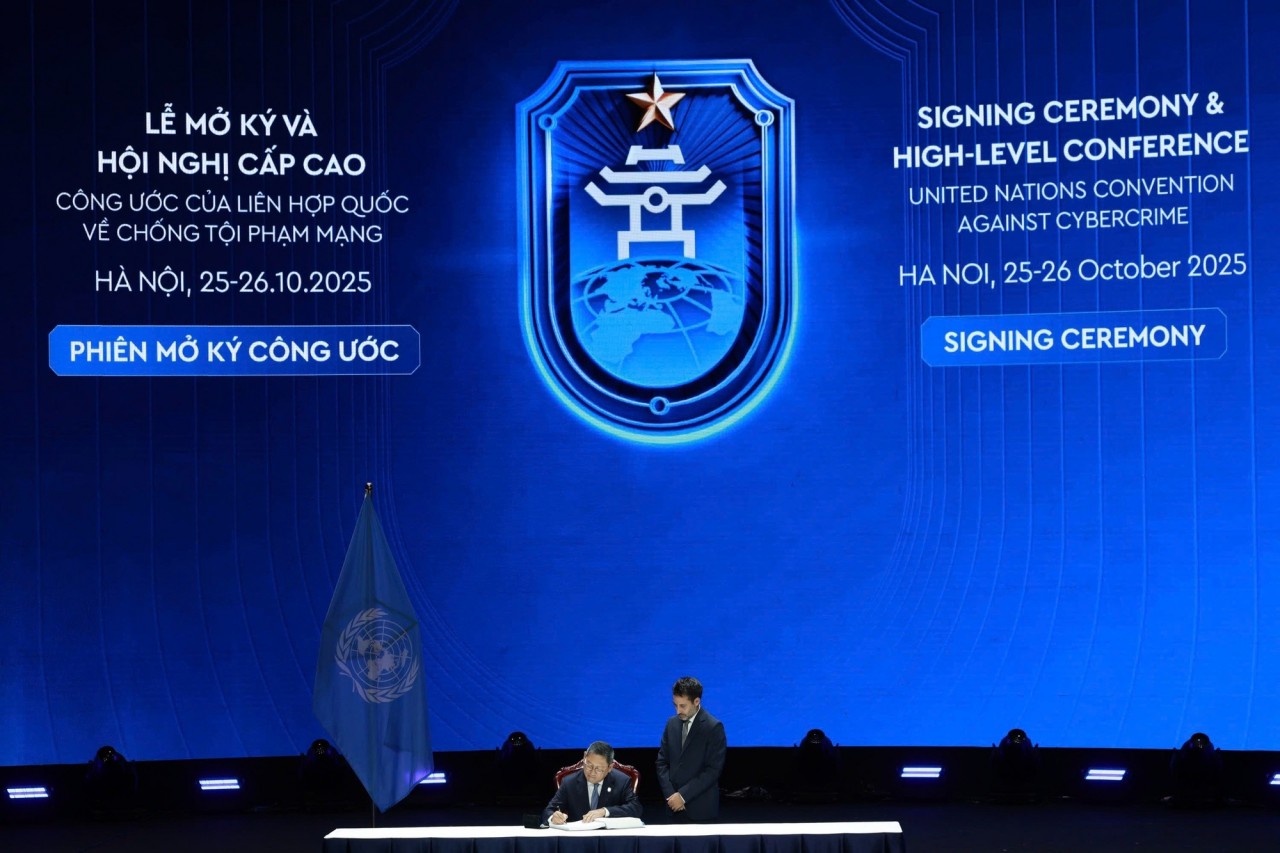 |
| The signing ceremony of the United Nations Convention against Cybercrime was held in Hanoi. (Photo: baochinhphu) |
The Convention was adopted by consensus following a rapid negotiation process with substantive and effective commitments. It reaffirms the importance of multilateralism and the central role of the United Nations in strengthening international cooperation based on international law to address global challenges. The negotiation process also highlights the UN’s efforts to keep pace with rapid technological advancements and its determination to achieve a collective outcome in preventing cybercrime amid the unpredictable evolution of artificial intelligence.
The Convention was negotiated in record time, with an exceptionally intensive schedule - eight official sessions and five intersessional meetings held over just 30 months (from February 2022 to August 2024), involving nearly 1,000 hours of negotiations and 1,600 pages of documentation. The Hanoi Convention was adopted by unanimous consensus among more than 150 countries, far exceeding the number of participating states in the negotiation of the UNTOC and UNCAC Conventions (around 120 countries each), and comparable in scale to major international treaties such as UNCLOS and BBNJ (each involving about 150 countries).
Notably, the Convention benefited from the active contributions and regular consultations of major business associations and leading global technology corporations such as Microsoft, Kaspersky, the International Chamber of Commerce (ICC), and Mastercard.
The appointment of Ambassador Mebarki, a seasoned female diplomat from Algeria, as Chair of the Negotiating Committee also reflects the United Nations’ trust in and expectations for developing countries. The commitments enshrined in the Convention directly serve the interests of developing nations, those still facing challenges in digital transformation and cybersecurity governance, through provisions on technical assistance, capacity building, and joint participation in cybercrime investigations. The Convention also safeguards these countries through mechanisms for the recovery and return of criminal assets. These are essential foundations enabling all nations to pursue digital transformation with greater confidence, without the looming threats of cybercrime.
Distinctive Strengths and Broad Impact
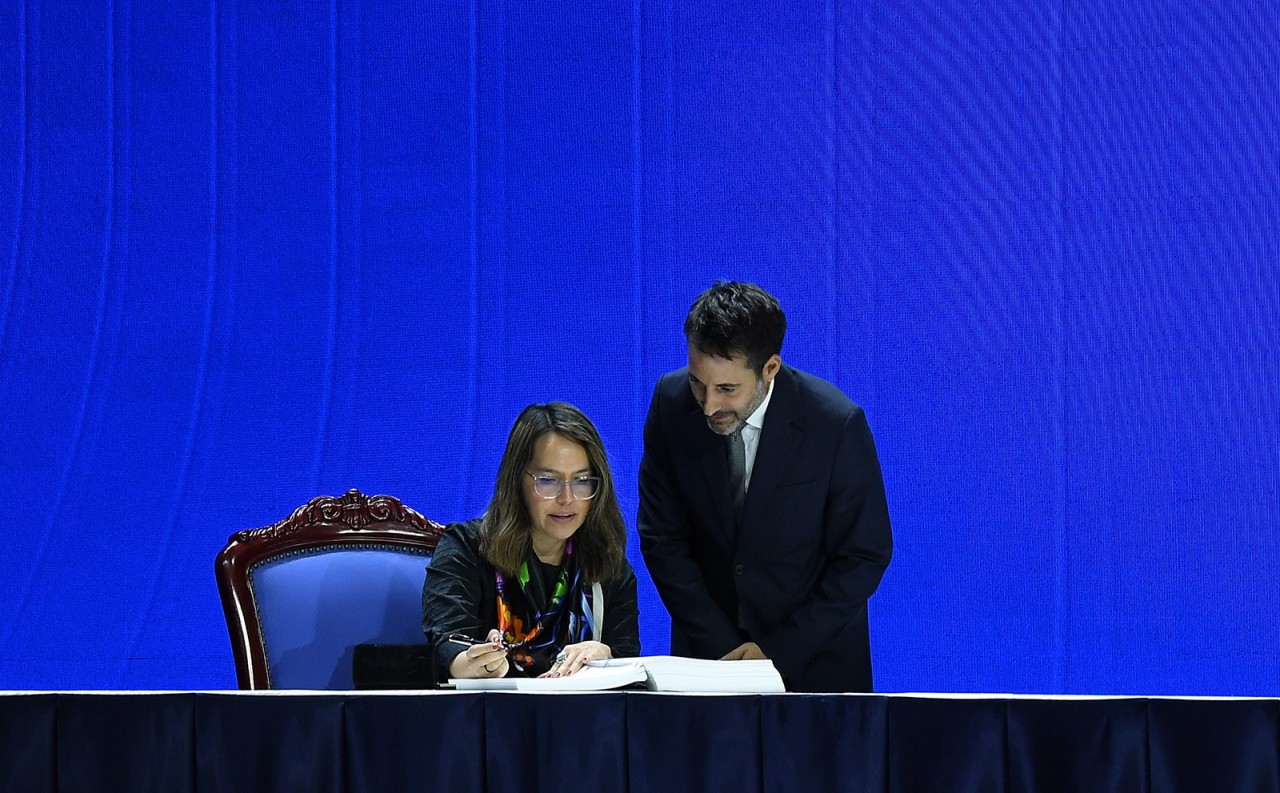 |
| Representatives of countries signing the United Nations Convention against Cybercrime. (Photo: VGP) |
In terms of scope, as a United Nations instrument, the Convention will have the broadest and most comprehensive influence among all existing documents related to cyberspace. Similar to previous criminal law conventions such as UNTOC and UNCAC, the Hanoi Convention is expected to soon achieve global reach, enabling the most extensive international cooperation in combating cybercrime.
In terms of substance, the Hanoi Convention builds upon well-established norms from existing regional instruments against cybercrime, such as the Budapest Convention (adopted by the Council of Europe in 2001) and the Malabo Convention (adopted by the African Union in 2014). At the same time, as a newly negotiated and updated document reflecting advances in digital technology, the Hanoi Convention timely incorporates provisions addressing emerging and highly detrimental forms of cybercrime, including online fraud, child exploitation in cyberspace, and the dissemination of private images.
From an operational perspective, the Convention provides clear guidance on the exchange of electronic evidence among nations concerning serious offenses that have been increasing in recent years, such as terrorism and transnational organized crime. These evidence-sharing provisions will enable countries to conduct more effective law enforcement operations to prevent crimes that pose direct threats to national security.
In terms of structure, the Hanoi Convention surpasses other regional instruments by incorporating additional technical measures to protect victims and witnesses, mechanisms for recovering criminal assets, and provisions for international cooperation in areas such as the transfer of convicted persons, joint investigations, and police collaboration. As such, the Hanoi Convention provides a comprehensive legal toolkit for law enforcement agencies to address the entire process related to cybercrime.
In terms of spirit, the Convention underscores the principles of international solidarity and equality among nations, particularly in offering technical assistance and capacity-building support for developing countries. Its provisions on technology transfer, knowledge sharing, professional training, legal framework development, and investigative capacity enhancement clearly demonstrate the international community’s commitment to ensuring that all countries, regardless of size or capability, can actively contribute to global efforts in combating cybercrime.
In terms of the distinct nature of cyberspace, the Convention gives due attention to the protection of human rights online, ensuring that procedures and investigations incorporate safeguards for individual rights and personal data exchange. It also establishes clear obligations for organizations and individuals acting as “service providers” in cyberspace - an unprecedented and defining feature of the first-ever Convention dedicated specifically to the digital domain.
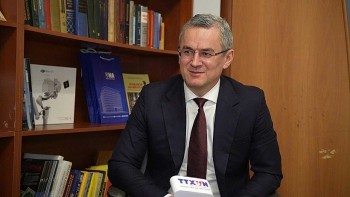 | Hanoi Convention: Testament to Vietnam’s Growing International Standing Ahead of the Signing Ceremony and High-Level Conference on the United Nations Convention against Cybercrime (the Hanoi Convention), taking place in Hanoi on October 25–26, ... |
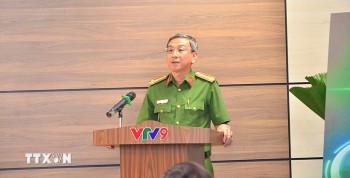 | Hanoi Convention: Identifying and Combating High-Tech Fraud Crimes In the context of increasingly sophisticated cybercrime, the Hanoi Convention is expected to establish a framework for international cooperation, enhancing the capacity to prevent, identify, ... |
Recommended
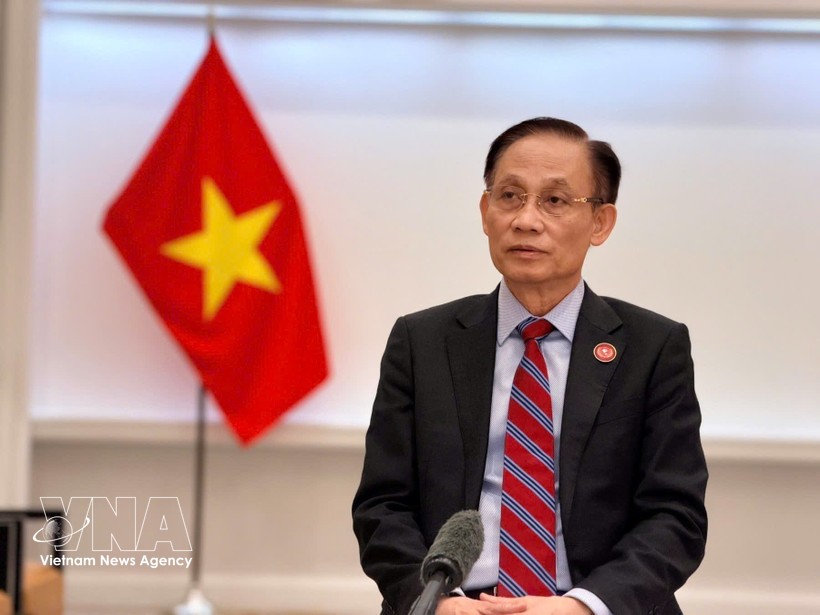 National
National
Party Chief’s US Trip Marks Milestone in High-level Multilateral Diplomacy: FM
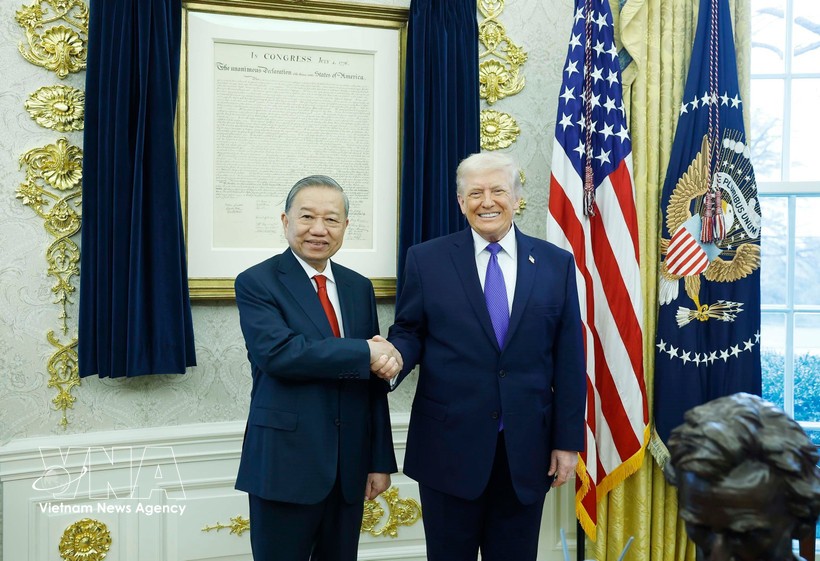 National
National
Party General Secretary To Lam Meets US President Donald Trump at White House
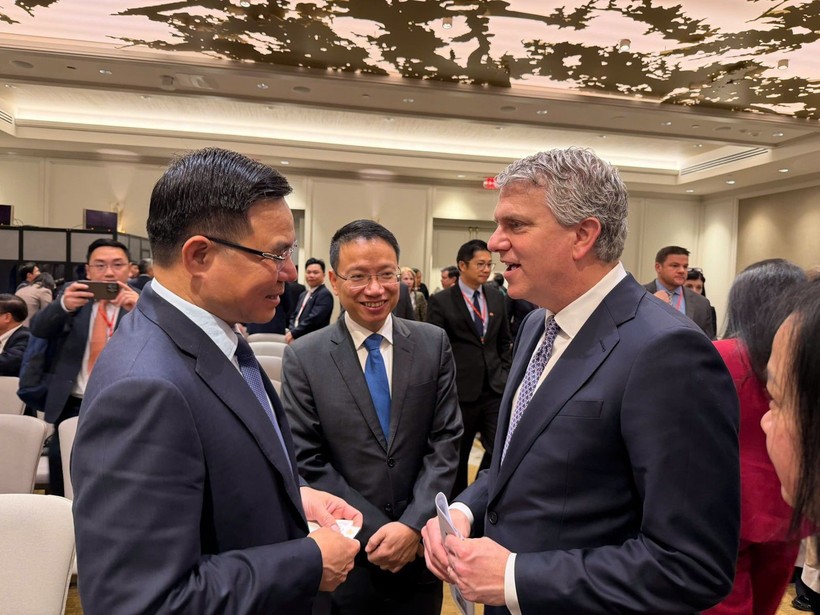 National
National
Vietnam News Today (Feb. 21): Vietnam, US Step Up Dialogue to Facilitate Trade Ties
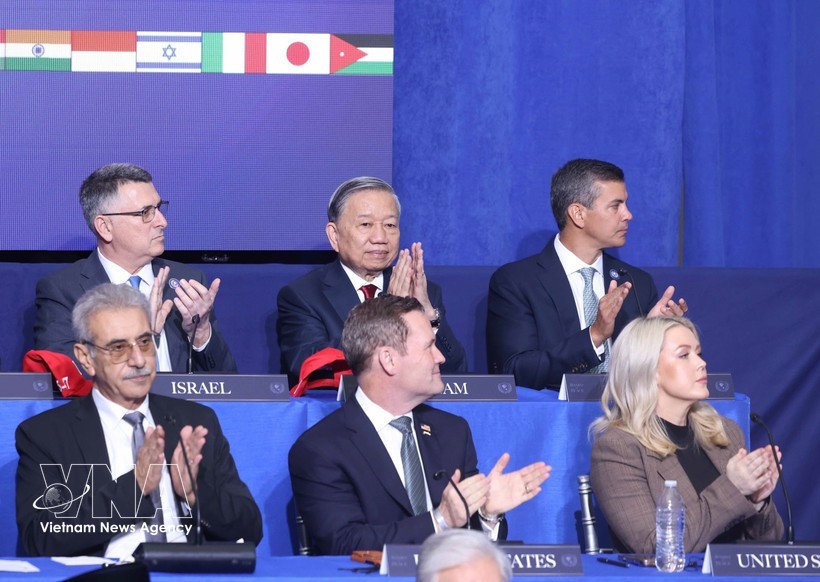 National
National
Party General Secretary To Lam Attends Inaugural Meeting of Gaza Board of Peace in US
Popular article
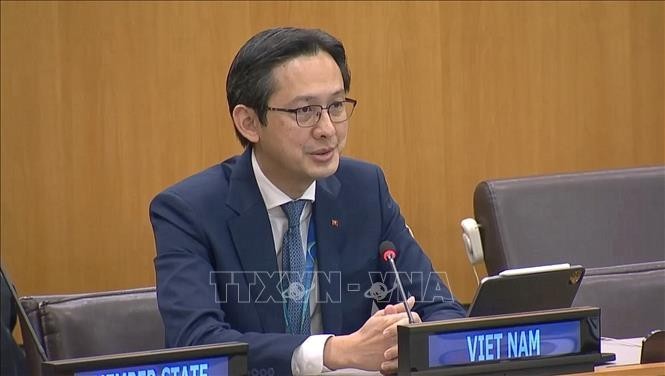 National
National
Vietnam Promotes Multilateral Dialogue on Nuclear Non-proliferation Ahead of the 2026 NPT Review Conference
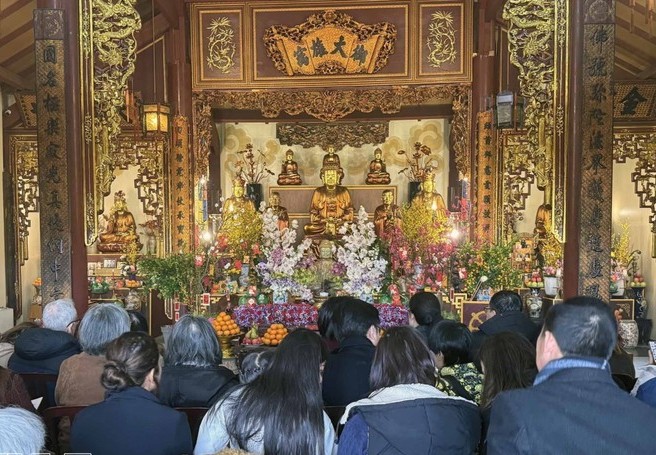 National
National
Vietnam News Today (Feb. 19): Vietnamese in France Cherish Traditional Practices During Tet
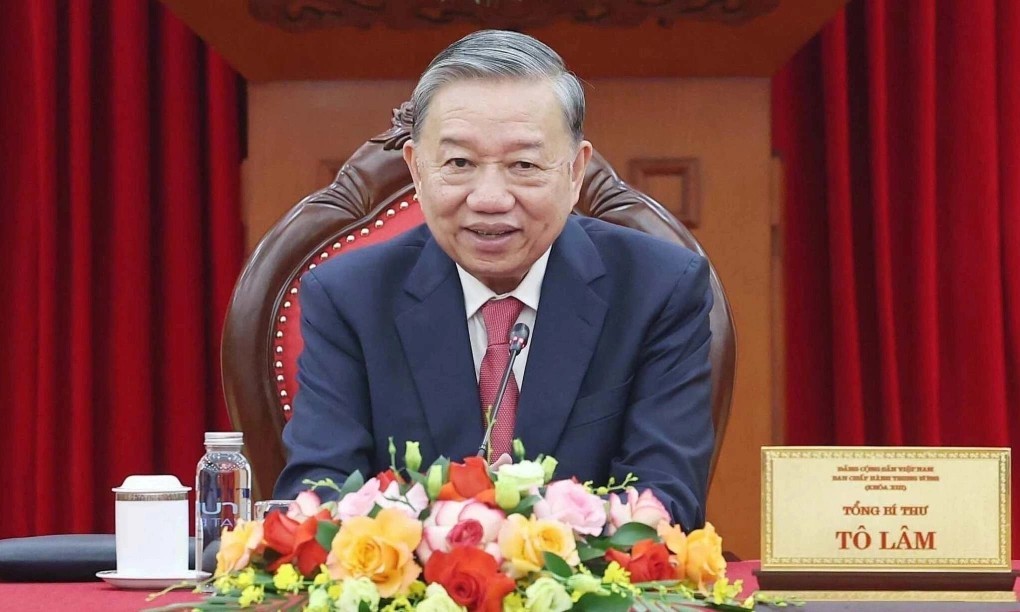 National
National
General Secretary To Lam to Attend Inaugural Meeting of the Gaza Peace Council in the United States
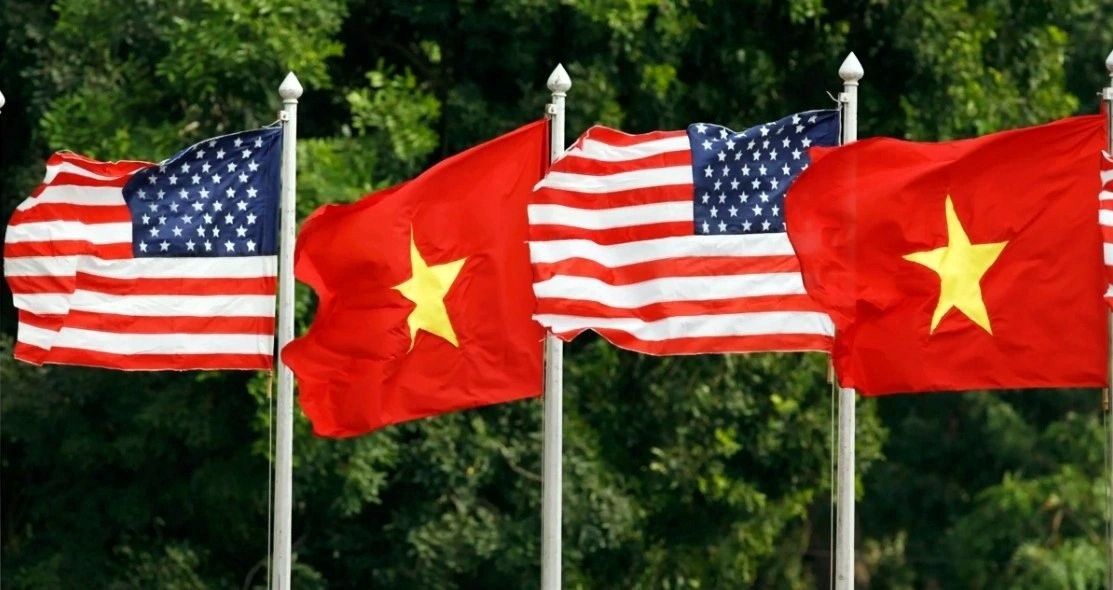 National
National



